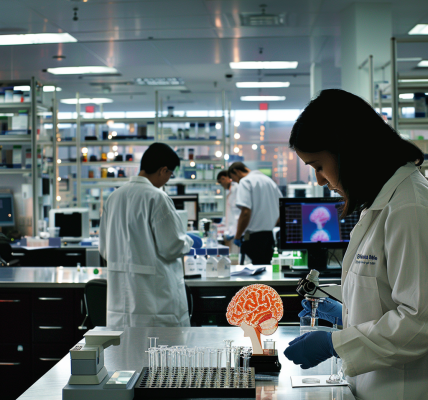Study Reveals Potential to Delay Menopause Indefinitely Through Ovarian Tissue Transplantation
A recent study conducted by a cohort of researchers, including experts from CU Anschutz, has shed light on the potential to delay menopause indefinitely through the transplantation of ovarian tissue. This groundbreaking research offers hope for women seeking to prolong their reproductive years and maintain overall health.
At birth, girls have approximately a million primordial follicles in their ovaries, each containing an egg cell. As they mature, most of these follicles perish, leaving only a single follicle to ovulate a mature egg each month. Menopause occurs when the loss of primordial follicles is nearly complete, and only a few hundred remain, leading to the cessation of menstrual cycles for 12 consecutive months.
However, a new mathematical model developed by a University of Utah mathematician suggests that delaying menopause, potentially indefinitely, is achievable through the transplantation of previously harvested ovarian tissue back into a woman’s body. This technique, which has already proven successful in restoring fertility in cancer patients, has sparked optimism among researchers.
The study, published in the American Journal of Obstetrics and Gynecology, involved collaboration between experts in various fields, including ovarian biology, mathematics, and statistics. The interdisciplinary team, comprising researchers from the University of Colorado School of Medicine at the CU Anschutz Medical Campus, University of Utah, and Yale University, has paved the way for a potential breakthrough in women’s health.
Notably, the technique of ovarian tissue cryopreservation, developed in the late 1990s, has already enabled numerous cancer survivors to conceive and bear children. This method, distinct from the conventional approach of freezing eggs, has demonstrated its effectiveness in preserving fertility and potentially delaying menopause.
According to Sean Lawley, PhD, Associate Professor of Mathematics at the University of Utah, the interest in delaying menopause extends beyond fertility concerns. He emphasized the potential health benefits associated with prolonged ovarian function, including reduced risks of cardiovascular disease, improved bone density, and lower likelihood of obesity.
Furthermore, the study suggests that if ovarian tissue is cryopreserved before the age of 30, it may even be possible to eliminate menopause in certain cases. This groundbreaking revelation opens new possibilities for women’s health and reproductive choices.





